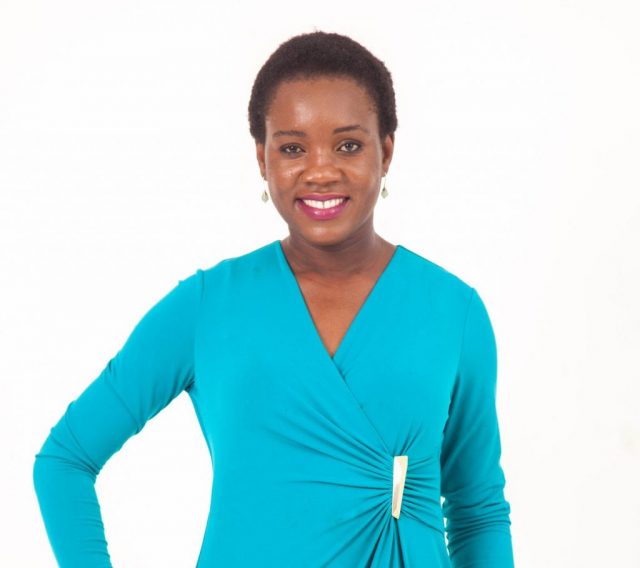The writer: Nzekwe Henry
Date first published: 15 May 2019
When Rachel Sibande was just a little girl that had barely crossed into to her teens, questions about what she wanted to become when she grew up had her screaming “French teacher.” The naive, little girl in her just wanted that and nothing more.
Of course, as kids, we all had dreams like that; dreams that metamorphosed into many different things as life happened and the aftershocks shoved us from side to side. But more than most can say, this kid’s dream morphed into something even better. At 33, she’s probably making more impact than she would have ever managed as a French teacher.
And that’s because, in her home country, Malawi, she’s built a career for herself in the field of technology and innovation. She teaches stuff, alright. But certainly not French. It gets even better.
In what has been an eventful journey that has seen her switch lanes quite a number of times, Rachel Sibande has seemingly scribbled her name on the annals of her country’s history by founding mHub; the very first technology hub in Malawi – essentially an incubator for technology startups with a special focus on supporting young tech entrepreneurs by offering training, skills development, and mentorship.
Growing up, Sibande was a curious child who had other interests besides wanting to teach the language of Francophone countries. She was also quite handy with stuff, often fiddling with toys and basically any accessory that had as much as a single microchip in it.
As a child, she would dismantle her toys and tinker with the family radio; efforts that got her into more trouble than it won her approval from her folks. This early curiosity is pretty much what whisked her away from the clutches of language studies and into the arms of computers.
Sibande spent her childhood shuttling between two of Malawi’s busiest towns, Lilongwe and Blantyre. While she was in high school, she became even more interested in the sciences and by the time she was heading off to college, technology and computers had won her heart when initially, she thought she was destined to become a laboratory scientist.
At the University of Malawi, she accepted a course in Computer Science and Statistics. Sure, it was exactly what she wanted but it was no cake walk. In her final year, she was only one five females still holding it down despite the fact that there were 14 of them when the journey began. More than half the girls they started out with had quit.
Upon obtaining her first degree, she took things up a notch by pursuing an MSc in Theory, Coding, and Cryptography at Mzuzu University. The course exposed her to the science of encrypting and decrypting information.
Sibande stuck to the teaching job for the better parts of two years before moving on to prospects that would eventually shape the course of her life.
She managed to secure a job as a Market System Specialist for the United States Agency for International Development (USAID), where she worked on funded projects for the organisation’s social economic growth portfolio.
Her stint with USAID lasted five years and during that time, she took her expertise to some other organisations like Flanders International Cooperation Agency (FICA) and Deutsche Gesellschaftfür Internationale Zusammenarbeit (GIZ).
Her work did all the talking and her stock rose. Swiftly, she rose through the ranks in those organisations and became Country Director of several multi-million-dollar development projects.
It was during this time that she led a project that brought to life Malawi’s first web-to-SMS service for the country’s smallholder farmer industry; a project that supports over half a million smallholders with SMS-supported extension services and commodity market prices via SMS.
When she completed the MSc program, the first job she took was a teaching job at Kamuzu Academy; one of the most prestigious schools in Malawi.
As she told Forbes; “I never had an opportunity to study there but I had a chance to go there and teach, so it was still motivational.”
She was also lead on a technology project that verified hundreds of thousands of Malawian voters in the build-up to the 2014 elections; a technology that was exported to countries like Mozambique and Tanzania in the years that followed, with, of course, Sibande calling the shots.
By now, she was becoming something of a local favourite and when the Young African Leaders Initiative (YALI) put together by former U.S. President, Barack Obama, came calling in 2012, the Malawian soon found herself on a plane headed for Chicago. That was when things began to really come together.
“It was a pivotal moment for me because, at that time, I knew I was very passionate about creating change in my country,” she says.
The 6-week internship programme in the United States opened her up to many things and while in Chicago, she visited a tech hub for the first time.
“When I saw the work that they were doing, it was a light bulb moment, like an aha moment, where I was like ‘okay, now I have actually found what it is that I need to go start back home that will quench my curiosities and that I can use to make the change that I want to see’,” she enthuses.
Sibande was motivated to set up a technology hub back home that would be customized to suit the Malawian perspective whose challenges she knew to be inherently unique. She wanted to create a hub that would ensure that there was a space where young technology enthusiasts like herself were brought up to speed with mentoring and facilitation of the hub and its members.
By her reckoning, the hub would serve as an incubation space for tech startups and put its networks with key partners to use in the corporate and development sectors so as to encourage the development of homegrown technology solutions for Malawi and beyond.
Now driven by the idea of setting up a hub that would be the first of its kind in her homeland, Sibande spent the next few months touring neighbouring countries like Kenya, Rwanda, and Zambia. There she learned about their technology hubs and was convinced more than ever that she could make the idea fly in Malawi.
“That process helped me come up with a business model for the mHub in Malawi that has helped us to actually be sustainable till this day.”
But noble as her intentions were, the hub was always going to a tough sell back home, and that’s mostly because the idea was unlike anything ever done or ever known in her country. Hence, her efforts at sourcing the funds locally to get the hub up and running proved abortive.
Not deterred, she worked her contacts even more and eventually, she got in touch with a foreign donor that was willing to fund the project. That donor came from the Netherlands in the form of Hivos. Thus, she started mHub in 2013 as a social enterprise and private technology company.
“I was leveraging my tech expertise. I realized the greatest capital I have is my intellectual capital,” she says.
With no more than her skill-sets in coding, developing algorithms and technology solutions, she started the company developing websites and enterprise systems.
“I realized there were no platforms like that in Malawi at the time, and I wanted to see and encourage young people to consider careers in tech,” she says.
The company would eventually generate social improvement programs, which led her to set up the mHub Trust. Through the Trust, she offered training to youths, particularly young girls, in digital skills; from the basics of animation to apps and robots. Since 2013, Sibande claims they have been able to reach over 30,000 young people in Malawi via all their programs.
Turn the calendar to 2018 and you’ll find that the growth has been exponential. Today, mHub also incubates innovative entrepreneurs from the tech, agriculture, architecture, and construction industries, offering up to USD 40 K each to innovative entrepreneurs with support from external investment partners.
Interestingly, one of the entrepreneurs that came through mHub is said to have developed a system that is capable of processing human urine to produce fertilizer at a lower cost than chemical fertilizers.
Due to the nature of her work, Sibande became all too aware that the incessant electricity cuts in Malawi posed serious problems to her business.
“It was even embarrassing for me to have international calls and Skype calls with colleagues outside the country because of the power challenges. So as an innovator, you see the solution in every problem,” she says.
“I had been researching the idea of using locally-available resources to generate electricity to cater for 90% of the population not connected to electric grids, and a third of them who are actually poor.”
She dug through low-cost affordable energy in India, Uganda, and other countries, for solutions. And she soon realized that the solution had, in fact, been with her all her life. It was the staple food of Malawi, maize crops
Sibande got in touch with her friends at Florida Polytechnic University, a project-based STEM education institution, to help her bring her idea to life. They furnished her with the technical support to start Earth Energy; an energy business that generates electricity using maize cobs.
At the onset, they were able to generate enough electricity to provide lighting for four houses for six to seven hours. Now she has five people on the payroll of Earth Energy and has community members selling maize cobs that would have otherwise been disposed of – thus, helping them earn a living.
“I believe in starting where you are from, where you are, and with what you have,” she says.
She took the same idea to the Next Einstein Forum global gathering in 2018 and her pitch saw her take home the USD 25 K prize money for her business idea; ‘Light from Maize’. She plans to use this to invest in machinery to deploy community micro-grids.
These days, you can find her jetting from Malawi to South Africa and back, as she is currently on the verge of completing her Ph.D. programme in Computer Science at Rhodes University in the Eastern Cape.
Throughout her career, awards and recognition have been aplenty with some of the most prominent ones being the 2015 Anita Borg Scholarship from Google, as well as a mention in Forbes’ list of the continent’s 30 most promising entrepreneurs under the age of 30. In March this year, she was named one of 20 New Wealth Creators on the African continent.
source: weetracker.com










